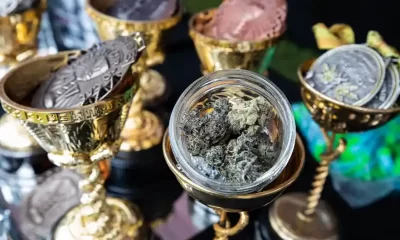Business
Essential Guide To Understanding Marijuana Concentrates
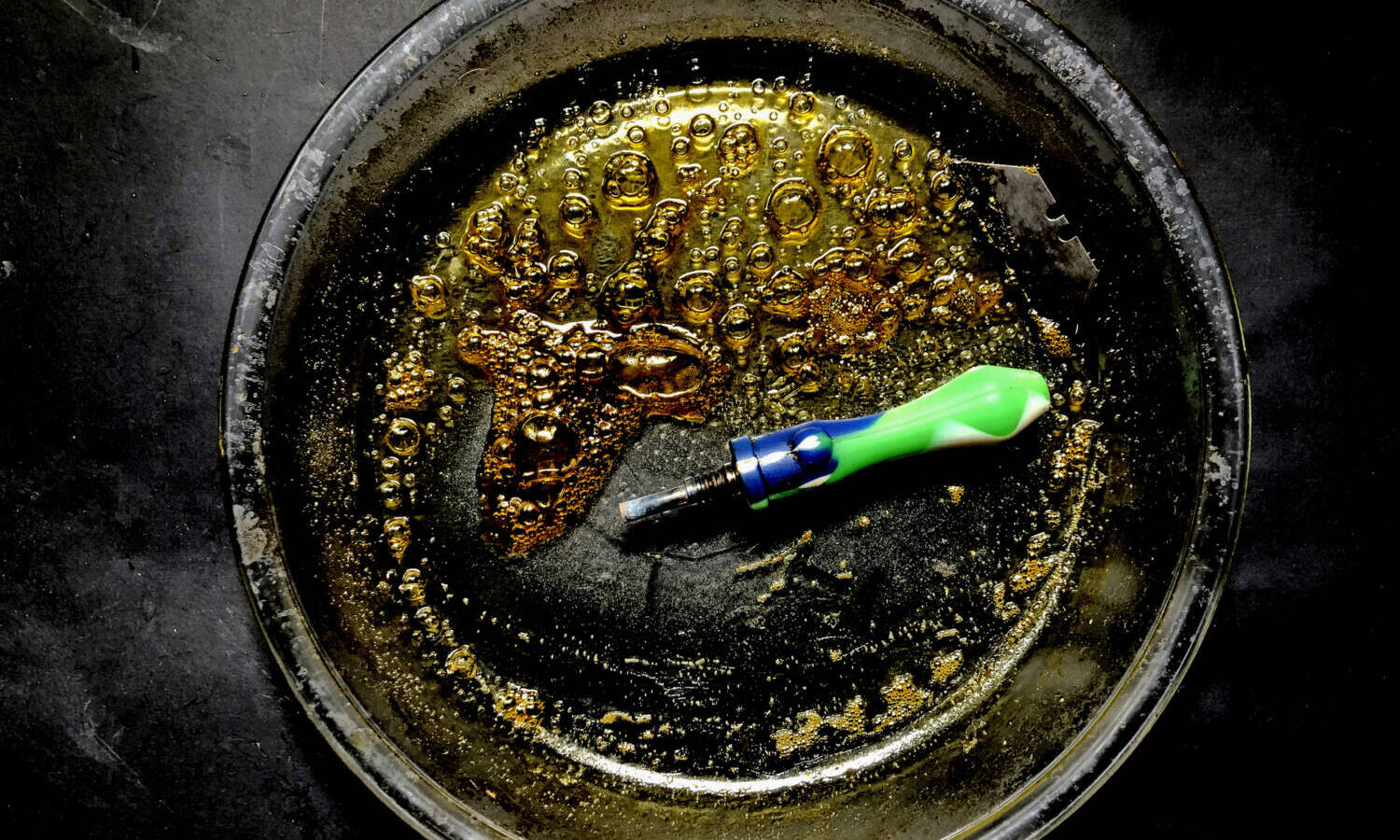
There are several methods, but every form of concentrate represents much more potent THC or CBD content than its flower predecessor.
As the marijuana industry continues to explode in growth, the methods of cannabis consumption seem to evolve just as quickly. Flower cannabis represents only a small portion of most dispensary retail operations. And as time goes on, concentrates are becoming more popular and diverse.
As this niche market begins to outsell other marijuana products, it is important to understand exactly what marijuana concentrates are.
What Are Marijuana Concentrates?
Concentrates are just that, concentrated forms. There are several methods, but every form of concentrate represents much more potent THC or CBD content than its flower predecessor. Flower normally has a THC content that ranges from 10% to 25%, but concentrated products can exceed 80%.
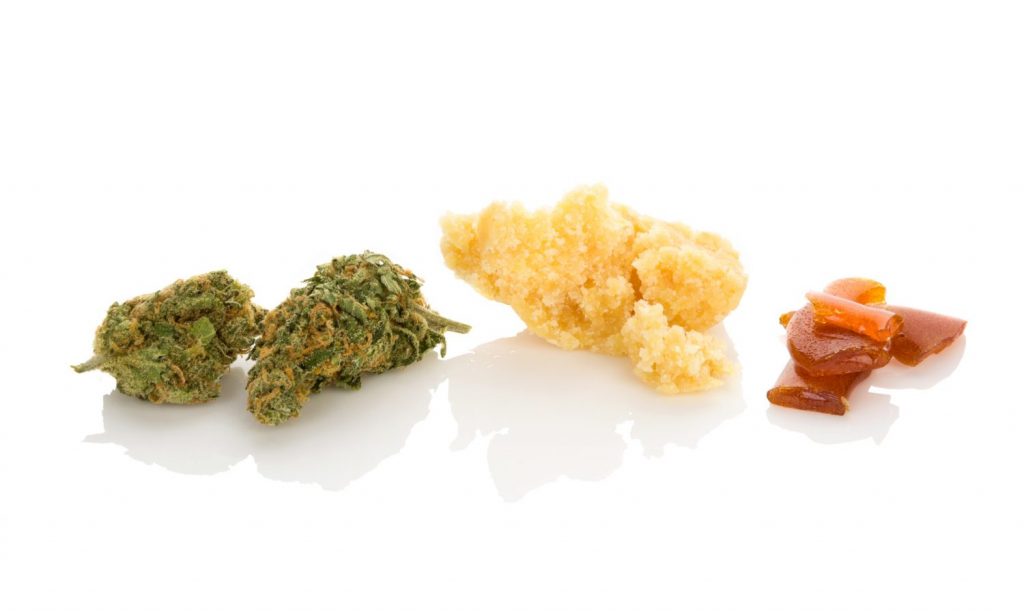
The way a concentrate is extracted or made affects the final product. This also affects how it is consumed. Some concentrates are smoked while others are vaporized. Some can be applied to the skin while others can be eaten or even drunk.
Common Forms of Concentrates
There is a long list of concentrates on the market currently, and the list will likely continue to grow as other niche markets continue to form. There are several concentrate varieties that are popular and worth noting as a starting point of knowledge for those who want to learn more.
Hash
Hash is the “OG” concentrate. It has been enjoyed for centuries, and has made quite a comeback with the boom of concentrates. Hash is typically fragrant, and is often pressed into a dense ball before consumption.
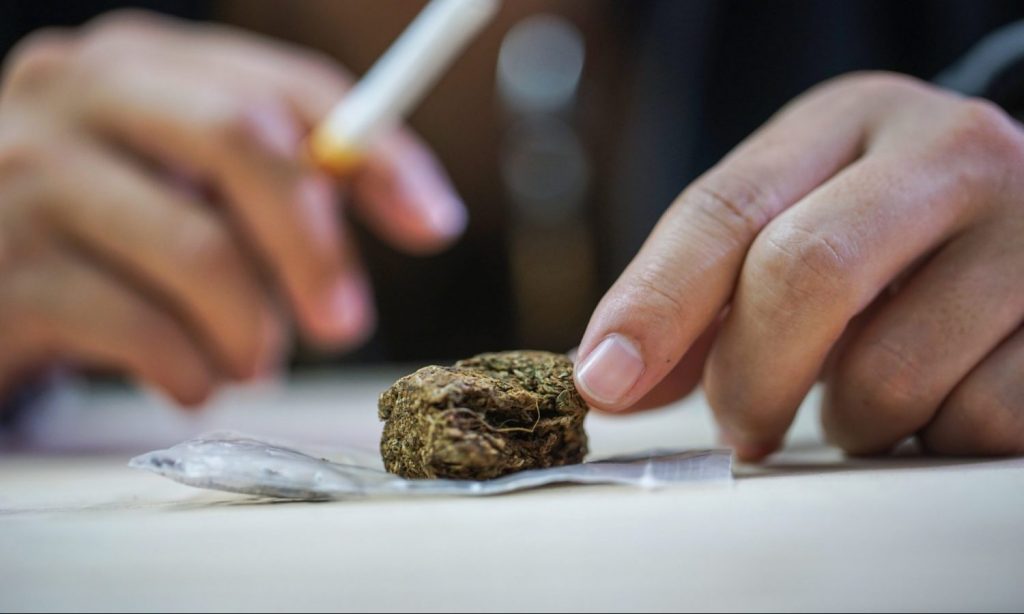
Shatter
Shatter is a form of butane hash oil. Those who seek to find shatter often do so because it is widely considered to be the purest form of concentrate. It is usually a clear solid substance with a smooth texture. It can resemble glass, and just like glass it can shatter — hence the name.
Live Resin
Live resin is extracted directly from a fresh flower after it is flash-frozen. This method preserves a lot of the cannabis aroma and terpenes so it is a great choice for those who love that rich marijuana flavor. But, Is Resin A Good Replacement If Marijuana Supplies Go Dry?
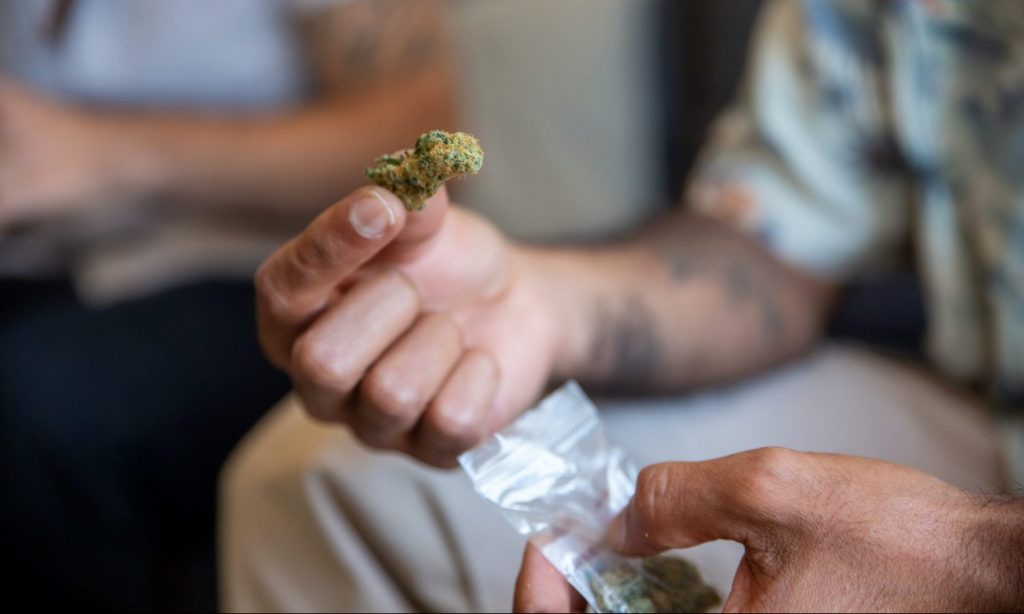
Rosin
Rosin is a common concentrate that many people create themselves using fresh flower, a hair straightener and parchment paper. It has become wildly common recently as it is accessible and easy to create. Need some repurposing inspiration? Here’s What To Do With Marijuana Rosin Chips.
Wax
Wax, or dab wax, is possibly the stickiest form of concentrate. Dabs are concentrated doses — typically about the size of a Tic-Tac breath mint — of marijuana. Dabs are manufactured by extracting THC, most commonly by using a solvent such as butane. The end product is a potent oil often referred to as wax, honey, shatter, budder, crumble or butane hash oil (BHO). Here’s the difference between Dabbing Wax Vs. Vaping Wax.
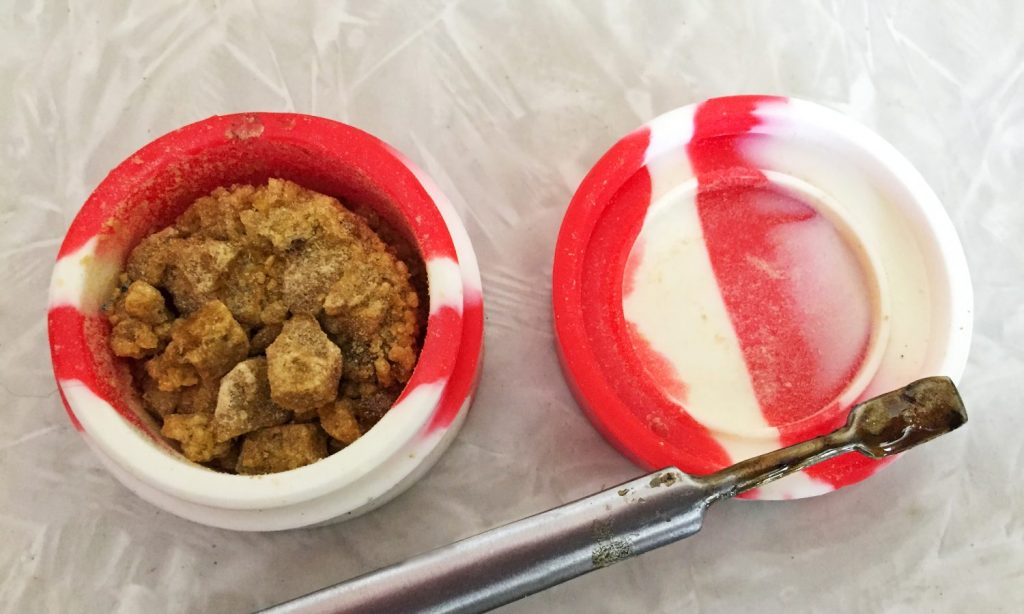
Crumble
Crumble is formed from wax. Once in wax form, if it goes into a vacuum or drying process it turns into crumble. Crumble can be formed or broken into pieces for dabbing.
Oils
Marijuana concentrates also come in oil form. The most common packaging is in a syringe (for topical use or ingestion) or in cartridge form. Oil is commonly used in e-cigarette style vape devices, producing a similar vapor to that of an e-cigarette, only infused with concentrated THC. Want more information? This is the #1 Difference Between Cannabis Oil And CBD Oil.
Tinctures
Tinctures are alcohol-based marijuana concentrates. Tinctures are growing in popularity as THC cocktails gain popularity. Tinctures are commonly ingested orally using a dropper, and can be added to food or beverage as well.
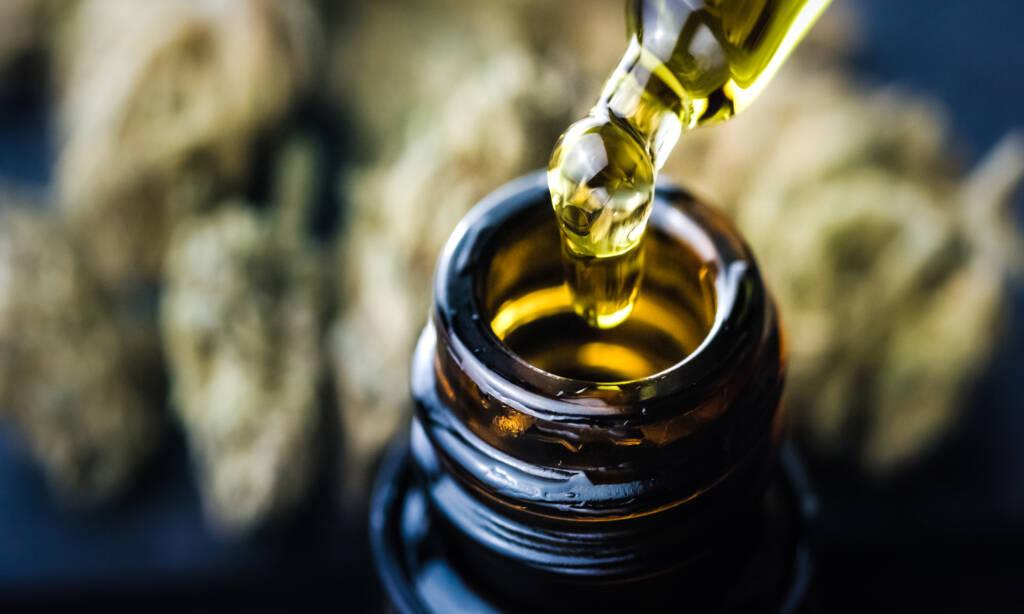
Are Concentrates Safe?
Concentrates should certainly be handled carefully. Just like with any form of THC, one should carefully research and monitor their consumption.
If all precautions are taken, a concentrate can be a great way to enjoy marijuana. In fact, its concentration can help dosing more precisely. Instead of “guessing” how you will feel after one joint, you can have a strong understanding of how one drop of tinctures or oil will affect you. As always, be sure to err on the side of caution when trying highly concentrated marijuana.
A 2020 study, conducted by CU Boulder researchers, suggested that although THC levels increase significantly in those who consume concentrates, boosting blood levels of THC more than twice as much as smoking conventional weed, the effects of the drug itself were not necessarily significantly greater.
According to coauthor Kent Hutchison, a professor of psychology and neuroscience at CU Boulder who also studies alcohol addiction, the study does not apply to inexperienced users, who should still be extremely cautious with concentrates.
“Does long-term, concentrated exposure mess with your cannabinoid receptors in a way that could have long-term repercussions? Does it make it harder to quit when you want to?” said Hutchison. “We just don’t know yet.”
Source: https://thefreshtoast.com/how-to/essential-guide-to-understanding-marijuana-concentrates/
Business
New Mexico cannabis operator fined, loses license for alleged BioTrack fraud

New Mexico regulators fined a cannabis operator nearly $300,000 and revoked its license after the company allegedly created fake reports in the state’s traceability software.
The New Mexico Cannabis Control Division (CCD) accused marijuana manufacturer and retailer Golden Roots of 11 violations, according to Albuquerque Business First.
Golden Roots operates the The Cannabis Revolution Dispensary.
The majority of the violations are related to the Albuquerque company’s improper use of BioTrack, which has been New Mexico’s track-and-trace vendor since 2015.
The CCD alleges Golden Roots reported marijuana production only two months after it had received its vertically integrated license, according to Albuquerque Business First.
Because cannabis takes longer than two months to be cultivated, the CCD was suspicious of the report.
After inspecting the company’s premises, the CCD alleged Golden Roots reported cultivation, transportation and sales in BioTrack but wasn’t able to provide officers who inspected the site evidence that the operator was cultivating cannabis.
In April, the CCD revoked Golden Roots’ license and issued a $10,000 fine, according to the news outlet.
The company requested a hearing, which the regulator scheduled for Sept. 1.
At the hearing, the CCD testified that the company’s dried-cannabis weights in BioTrack were suspicious because they didn’t seem to accurately reflect how much weight marijuana loses as it dries.
Company employees also poorly accounted for why they were making adjustments in the system of up to 24 pounds of cannabis, making comments such as “bad” or “mistake” in the software, Albuquerque Business First reported.
Golden Roots was fined $298,972.05 – the amount regulators allege the company made selling products that weren’t properly accounted for in BioTrack.
The CCD has been cracking down on cannabis operators accused of selling products procured from out-of-state or not grown legally:
- Regulators alleged in August that Albuquerque dispensary Sawmill Sweet Leaf sold out-of-state products and didn’t have a license for extraction.
- Paradise Exotics Distro lost its license in July after regulators alleged the company sold products made in California.
Golden Roots was the first alleged rulebreaker in New Mexico to be asked to pay a large fine.
Source: https://mjbizdaily.com/new-mexico-cannabis-operator-fined-loses-license-for-alleged-biotrack-fraud/
Business
Marijuana companies suing US attorney general in federal prohibition challenge

Four marijuana companies, including a multistate operator, have filed a lawsuit against U.S. Attorney General Merrick Garland in which they allege the federal MJ prohibition under the Controlled Substances Act is no longer constitutional.
According to the complaint, filed Thursday in U.S. District Court in Massachusetts, retailer Canna Provisions, Treevit delivery service CEO Gyasi Sellers, cultivator Wiseacre Farm and MSO Verano Holdings Corp. are all harmed by “the federal government’s unconstitutional ban on cultivating, manufacturing, distributing, or possessing intrastate marijuana.”
Verano is headquartered in Chicago but has operations in Massachusetts; the other three operators are based in Massachusetts.
The lawsuit seeks a ruling that the “Controlled Substances Act is unconstitutional as applied to the intrastate cultivation, manufacture, possession, and distribution of marijuana pursuant to state law.”
The companies want the case to go before the U.S. Supreme Court.
They hired prominent law firm Boies Schiller Flexner to represent them.
The New York-based firm’s principal is David Boies, whose former clients include Microsoft, former presidential candidate Al Gore and Elizabeth Holmes’ disgraced startup Theranos.
Similar challenges to the federal Controlled Substances Act (CSA) have failed.
One such challenge led to a landmark Supreme Court decision in 2005.
In Gonzalez vs. Raich, the highest court in the United States ruled in a 6-3 decision that the commerce clause of the U.S. Constitution gave Congress the power to outlaw marijuana federally, even though state laws allow the cultivation and sale of cannabis.
In the 18 years since that ruling, 23 states and the District of Columbia have legalized adult-use marijuana and the federal government has allowed a multibillion-dollar cannabis industry to thrive.
Since both Congress and the U.S. Department of Justice, currently headed by Garland, have declined to intervene in state-licensed marijuana markets, the key facts that led to the Supreme Court’s 2005 ruling “no longer apply,” Boies said in a statement Thursday.
“The Supreme Court has since made clear that the federal government lacks the authority to regulate purely intrastate commerce,” Boies said.
“Moreover, the facts on which those precedents are based are no longer true.”
Verano President Darren Weiss said in a statement the company is “prepared to bring this case all the way to the Supreme Court in order to align federal law with how Congress has acted for years.”
While the Biden administration’s push to reschedule marijuana would help solve marijuana operators’ federal tax woes, neither rescheduling nor modest Congressional reforms such as the SAFER Banking Act “solve the fundamental issue,” Weiss added.
“The application of the CSA to lawful state-run cannabis business is an unconstitutional overreach on state sovereignty that has led to decades of harm, failed businesses, lost jobs, and unsafe working conditions.”
Business
Alabama to make another attempt Dec. 1 to award medical cannabis licenses

Alabama regulators are targeting Dec. 1 to award the first batch of medical cannabis business licenses after the agency’s first two attempts were scrapped because of scoring errors and litigation.
The first licenses will be awarded to individual cultivators, delivery providers, processors, dispensaries and state testing labs, according to the Alabama Medical Cannabis Commission (AMCC).
Then, on Dec. 12, the AMCC will award licenses for vertically integrated operations, a designation set primarily for multistate operators.
Licenses are expected to be handed out 28 days after they have been awarded, so MMJ production could begin in early January, according to the Alabama Daily News.
That means MMJ products could be available for patients around early March, an AMCC spokesperson told the media outlet.
Regulators initially awarded 21 business licenses in June, only to void them after applicants alleged inconsistencies with how the applications were scored.
Then, in August, the state awarded 24 different licenses – 19 went to June recipients – only to reverse themselves again and scratch those licenses after spurned applicants filed lawsuits.
A state judge dismissed a lawsuit filed by Chicago-based MSO Verano Holdings Corp., but another lawsuit is pending.
Source: https://mjbizdaily.com/alabama-plans-to-award-medical-cannabis-licenses-dec-1/
-

 Business2 years ago
Business2 years agoPot Odor Does Not Justify Probable Cause for Vehicle Searches, Minnesota Court Affirms
-

 Business2 years ago
Business2 years agoNew Mexico cannabis operator fined, loses license for alleged BioTrack fraud
-

 Business2 years ago
Business2 years agoAlabama to make another attempt Dec. 1 to award medical cannabis licenses
-

 Business2 years ago
Business2 years agoWashington State Pays Out $9.4 Million in Refunds Relating to Drug Convictions
-

 Business2 years ago
Business2 years agoMarijuana companies suing US attorney general in federal prohibition challenge
-

 Business2 years ago
Business2 years agoLegal Marijuana Handed A Nothing Burger From NY State
-

 Business2 years ago
Business2 years agoCan Cannabis Help Seasonal Depression
-

 Blogs2 years ago
Blogs2 years agoCannabis Art Is Flourishing On Etsy












